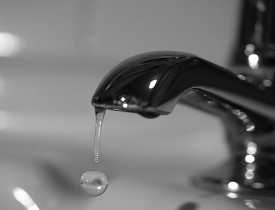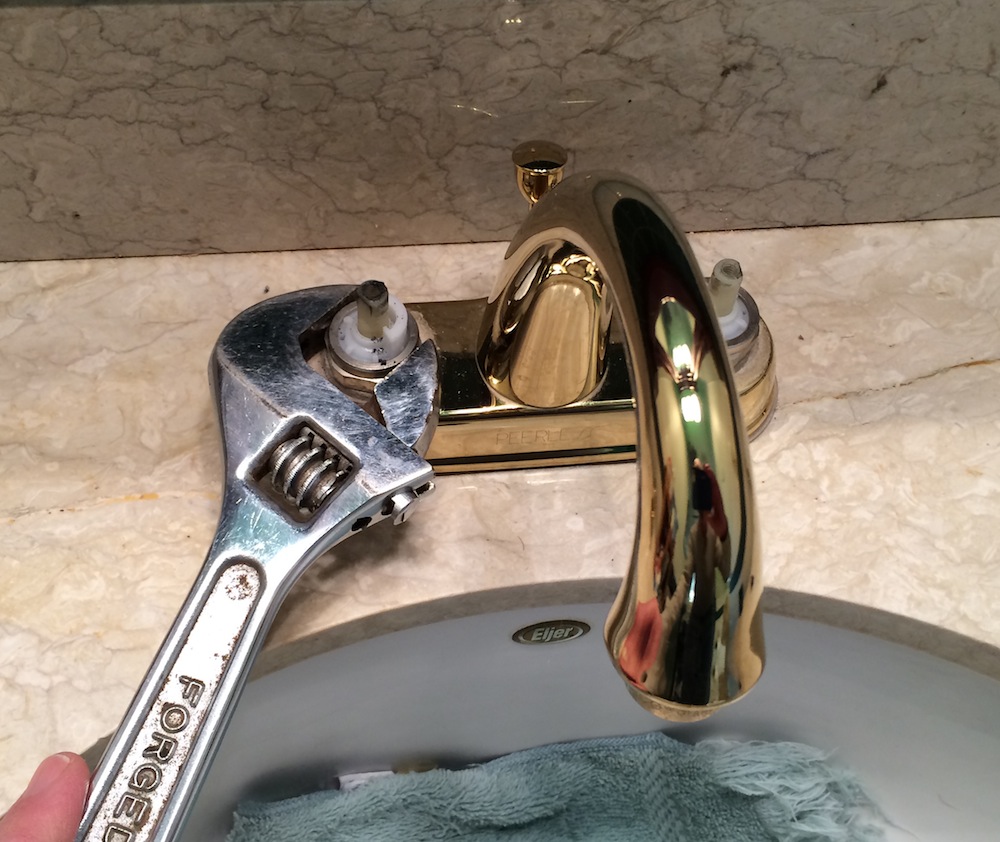How It's Vital to Resolve a Malfunctioning Faucet
How It's Vital to Resolve a Malfunctioning Faucet
Blog Article
Nearly everybody may have their own opinions when it comes to What Causes Leaky Faucets & How To Fix Them.

Leaking taps might seem like a small aggravation, but their effect surpasses just the annoyance of the sound. From wasting water to incurring unneeded monetary expenses and health threats, overlooking a trickling tap can bring about numerous effects. In this article, we'll delve into why it's important to address this common house issue without delay and successfully.
Waste of Water
Environmental Impact
Leaking taps add dramatically to water wastage. According to the Environmental Protection Agency (EPA), a solitary tap leaking at one drip per secondly can throw away more than 3,000 gallons of water annually. This not only pressures water sources but also influences ecosystems and wildlife based on them.
Step-by-Step Overview to Dealing With a Dripping Faucet
Tools Required
Prior to attempting to fix a trickling faucet, gather the needed tools, including a flexible wrench, screwdrivers, replacement components (such as washing machines or cartridges), and plumber's tape.
Common Tap Issues and Their Solutions
Recognize the kind of faucet and the certain issue triggering the drip. Typical problems consist of damaged washing machines, corroded shutoff seats, or faulty O-rings. Describe maker guidelines or online tutorials for step-by-step guidance on repair services.
Financial Costs
Increased Water Expenses
Past the environmental influence, leaking taps can inflate water bills considerably. The accumulated waste with time equates right into higher utility expenses, which can have been avoided with prompt repair services.
Prospective Residential Property Damage
In addition, long term dripping can lead to damage to components and surface areas surrounding the faucet. Water build-up can trigger staining, rust, and also architectural concerns if left neglected, causing added repair work costs.
Health and wellness Issues
Mold and Mildew Development
The continuous presence of moisture from a dripping tap produces a suitable environment for mold and mildew and mildew growth. These fungis not only compromise interior air quality yet likewise present health and wellness risks, particularly for people with respiratory system conditions or allergic reactions.
Waterborne Diseases
Stationary water in dripping taps can become a breeding ground for bacteria and various other microorganisms, enhancing the threat of waterborne conditions. Pollutants such as Legionella bacteria grow in stationary water, potentially resulting in major ailments when consumed or inhaled.
DIY vs. Expert Repair work
Pros and Cons of Do It Yourself Repair
While some may try to deal with a leaking tap themselves, DIY fixings feature their very own set of difficulties. Without correct knowledge and tools, DIY attempts can worsen the concern or result in incomplete repair services, lengthening the issue.
Benefits of Employing a Specialist Plumber
Working with an expert plumber makes certain that the underlying source of the trickling tap is resolved efficiently. Plumbings have the expertise and tools to detect and fix tap problems effectively, saving time and reducing the risk of further damages.
Environmental Obligation
Individual Payment to Conservation
Taking responsibility for fixing trickling taps aligns with wider efforts towards water preservation and ecological sustainability. Every individual's actions jointly make a substantial influence on maintaining precious sources.
Sustainable Living Practices
By prioritizing punctual repair services and embracing water-saving behaviors, people add to lasting living practices that profit both present and future generations.
Safety nets
Routine Upkeep Tips
To avoid dripping taps, carry out routine maintenance such as cleaning up aerators, inspecting for leaks, and changing damaged components promptly. Additionally, take into consideration setting up water-saving tools or upgrading to a lot more reliable fixtures.
Value of Prompt Fixes
Dealing with leaking taps as soon as they're seen prevents more water waste and prospective damage, inevitably conserving both water and money over time.
Impact on Residential Or Commercial Property Worth
Understanding of Well-Maintained Residential Property
Preserving a property in good condition, consisting of addressing upkeep problems like leaking faucets, boosts its viewed value and charm amongst potential buyers or lessees.
Influence on Resale Worth
Features with well-maintained plumbing components, consisting of taps, command greater resale worths in the realty market. Addressing leaking taps can contribute to a positive impact during residential property assessments and negotiations.
Verdict
Addressing a dripping faucet exceeds mere convenience; it's a vital action towards conserving water, decreasing financial costs, and safeguarding health and home. Whether with do it yourself fixings or professional assistance, acting to deal with leaking faucets is a small yet impactful way to promote responsible stewardship of sources and contribute to a healthier, much more lasting future.
How to Fix a Leaky Faucet: Step-by-Step Repair Guide
A leaky faucet may seem like a simple annoyance, but if it's not fixed promptly, that leak could cost hundreds to potentially thousands. From water damage to mold, mildew, and high water bills, even a tiny leak can be catastrophic if left unattended. Damage like this can even affect the overall value of your home, so it's important to take the right approach for leaky faucet repair. You may need the help of a plumber in some cases, but we've got a few tips you can try on how to fix a leaky faucet before calling the pros.
Four Faucet Types
When you're learning how to fix a leaky faucet, the first step is knowing what kind of faucet you're working with! There are four common types.
Cartridge Faucets
Cartridge faucets come in one- or two-handled varieties. In one-handled cartridge faucets, hot and cold water combines in a single cartridge. In the two-handled versions, hot and cold water are controlled separately and mixed in the faucet.
Ball Faucets
Ball faucets have a single lever you push up and down to adjust the pressure and rotate to change the temperature. A slotted metal ball controls the amount of water allowed into the spout.
Compression Washer Faucets
They're the oldest type of faucet, but they're still used in many homes — especially older ones. Compression faucets have two separate handles that, when turned, raise or lower the washer that seals a water valve. This valve stops water from flowing through the faucet when it is turned off.
Disc Faucets
Disc faucets rarely need to be repaired due to their maintenance-free design. The water flow is controlled by two discs — the upper one raises and lowers against a fixed lower disc, creating a watertight seal. If your disc faucet starts leaking, you may need to replace the seals or clean residue buildup from the inlets.
Fixing a Leaky Faucet
Step 1: Turn Off the Water
Whether you're learning how to fix a leaky bathtub faucet or how to fix a leaky kitchen faucet, always turn off the water supply to your working area when you're fixing a leak. The last thing you want is a flood added to your list of things to fix.
Look for the shutoff valves below your sink or around the tub and turn them clockwise to stop the water flow. If your faucet doesn't have shutoff valves, you may need to turn off the water for the whole house. Check to make sure it's off by turning the faucet on. If nothing comes out, you're ready to start the repair.
Step 2: Take Apart the Faucet
How you disassemble your faucet depends on the type of fixture you have. You can use a flathead screwdriver to remove the caps on top of the handle or handles for cartridge and compression faucets. Inside, you should see handle screws. Unscrew these with a screwdriver to remove the handle.
Disc- and ball-style faucets will typically have an inlet screw near the handle, and removing that will reveal the interior of the faucet.
Detach the Valve Stem
For cartridge- and compression-style faucets, you'll see the inner valve stem or cartridge once you remove the faucet handles. If you have a compression faucet, unscrew the brass valve stem. If you have a cartridge faucet, pull out the cartridge. If your cartridge has been in place for a while, it may require some tools or extra force to remove it due to mineral deposits.
Examine and Replace Parts
Once you've removed the parts, check them out to confirm what needs to be replaced. You may see corroded rubber washers, O-rings, stems, or cartridges. On a ball-style faucet, check the seats and springs for damage.
If you need to repair a leaky disc faucet, check the inlet and seals on the lower disc.
Once you determine what parts must be replaced, visit your local hardware store. Bring the damaged parts with you to ensure you can purchase the correct components to replace them.
Clean Valves and Faucet Cavity
If you've removed a stem or cartridge, you may notice mineral buildup in the faucet's threads. Use white vinegar to clean the valve seat by soaking it for a few minutes, then scrub it away with a soft toothbrush and rinse with warm water. You can also clean the interior of the faucet in the same way.
Reassemble the Faucet
Once your faucet is cleaned and the required parts have been replaced, it's time to reassemble it. Put the pieces back together and slowly turn the water supply back on. Doing this slowly is crucial because too much initial water pressure can damage the new hardware you've just installed.
https://homewarranty.firstam.com/blog/how-to-fix-leaky-faucet

I hope you enjoyed reading our article about . Thanks a lot for taking a few minutes to read our article post. Enjoyed our post? Please share it. Let somebody else discover it. We cherish your readership.
Report this page